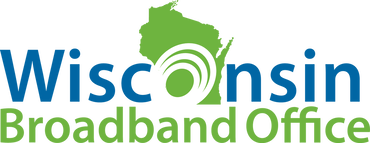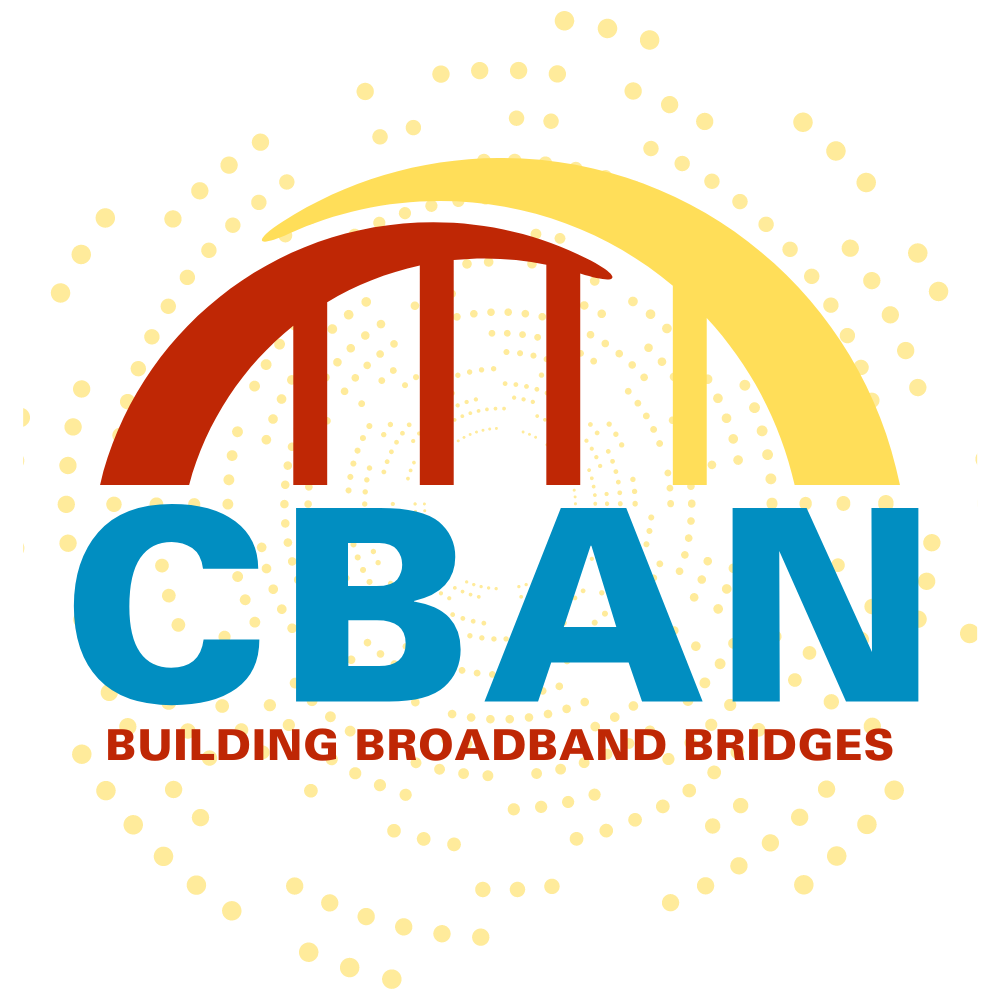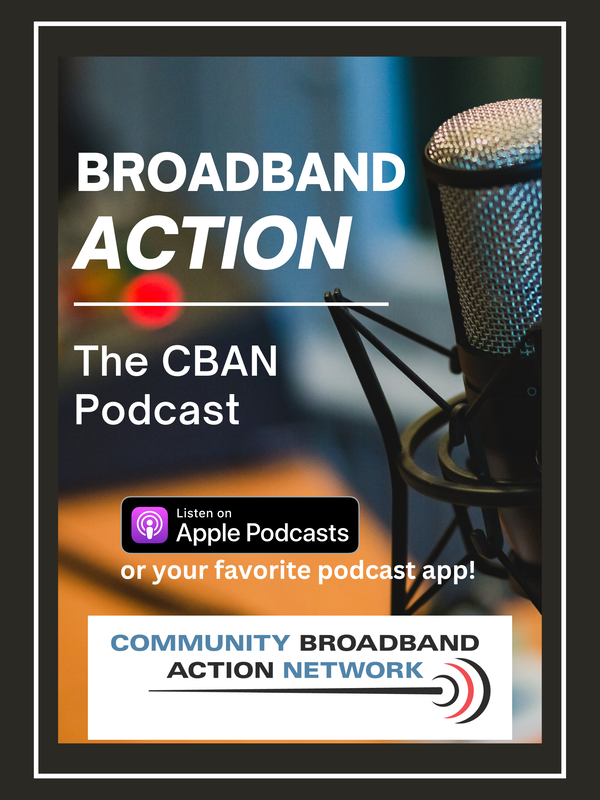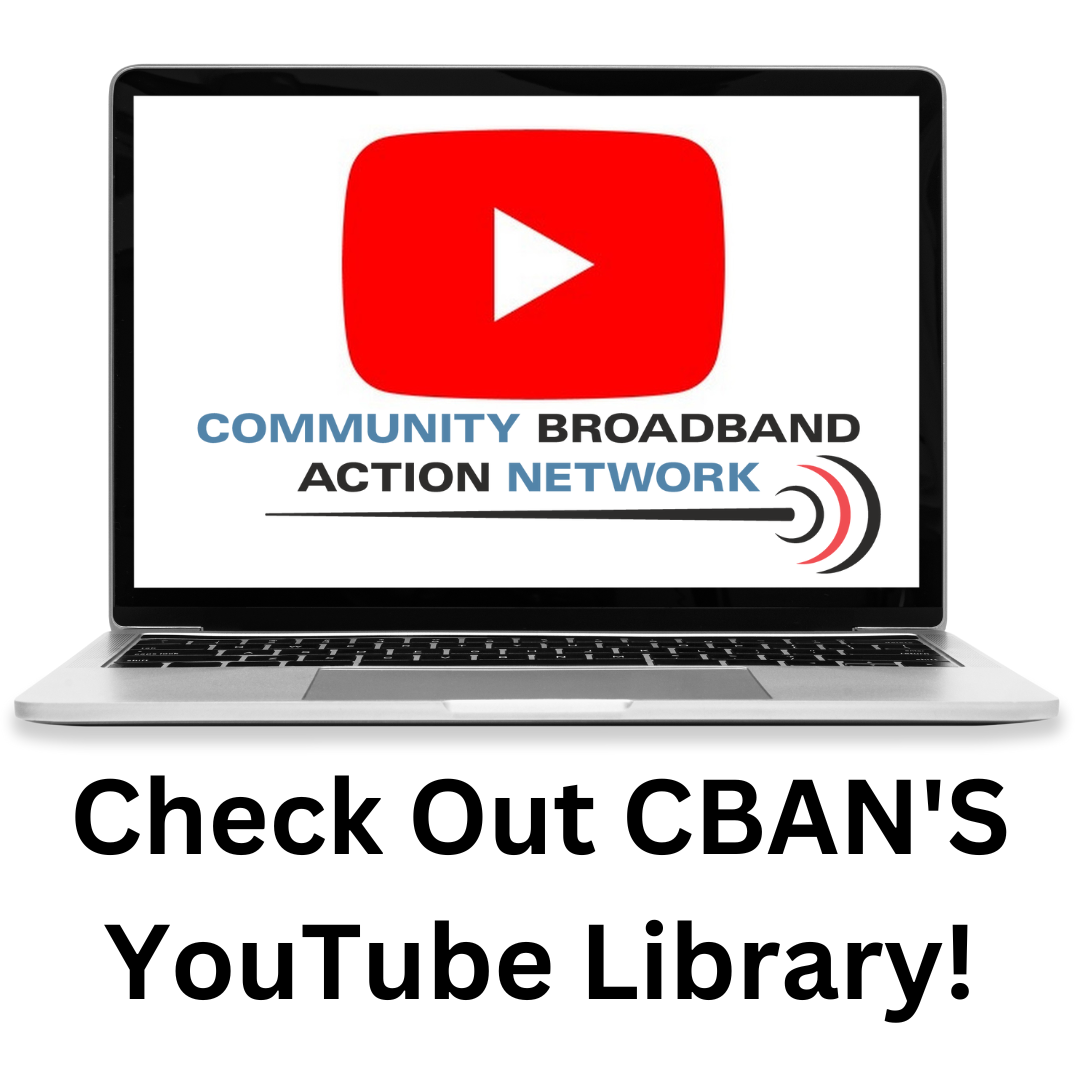|
As we edge closer to the end of 2021, CBAN's growth continues to accelerate. We now have 112 members in 12 different states. Our two newest Advocate members are both based in Michigan. We'll share more information about both of these organizations in a future edition of Broadband Bytes!
0 Comments
Gilroy, California Gilroy, South County may get public internet service provider Fort Collins, Colorado Fort Collins Connexion needs $20 million funding boost for last phase of buildout Palm Coast, Florida MetroNet announces $50 million expansion to Palm Coast Des Moines, Iowa Results of the Central Iowa Broadband Study released Piscataquis County, Maine
It will take $27M to expand internet in Piscataquis County, a new study shows  Starlink, a low-Earth orbit satellite internet provider owned by Elon Musk, holds a lot of promise in bringing better broadband to the hardest-to-reach corners of the globe. But right here in the USA, its performance appears to be waning a bit. According to an article at PC Magazine, the Starlink speed tests measured by Ookla have declined in the US by about 10 megabits per second on the download. Meanwhile, performance in other nations such as Canada continues to impress. This performance drop is likely why Starlink has not simply provided service to every person in the US. Although the company continues to launch satellites by the dozens, it takes time for those new birds to reach their final orbits and become part of the operational constellation. As Doug Dawson of CCG Consulting told us on our most recent edition of "Lunch and Learn" (and posted in his annual predictions post at his Pots and Pans blog, "Starlink is going to be unspectacular." Starlink's trajectory certainly deserves close monitoring in the coming year.
The Iowa Office of Chief Operations Officer, which serves as the state's broadband office, has announced the applications it received in the latest round of the Empower Rural Iowa Broadband Grant Program. The latest round, Notice of Funding Opportunity 7 (NOFA 007) includes 188 applications by 82 applicants seeking $396 million in funding to build broadband in unserved areas. The NOFA 007 round, which closed to applications in late November, has a budget of $200 million that was designated by Iowa Governor Kim Reynolds from the state's American Rescue Plan allocation. With nearly double the amount of requests than funds available, many applicants will go away empty-handed in this round, just as they have in previous rounds. Most of the applicants in Iowa are independent telecommunications cooperatives and mutal companies as well as a number of municipals. Among the applicants are CBAN Provider members Indianola Municipal Utilities, Manning Municipal Utilities, Grand Mound Cooperative Telephone, Mahaska Communications Group, Waverly Utilities, Osage Municipal Utilities, Vinton Municipal Communications Utility, ImOn Communications, and Router 12 Networks.
 ImOn Communications, a CBAN member, is picking up the pace on construction of its fiber-to-the-home network in Iowa City and Coralville, Iowa. As highlighted in an article in the Cedar Rapids Gazette, ImOn's pace of construction in the two adjacent communities picked up significantly this fall, with the goal of completing construction by the end of 2022. Based in Cedar Rapids, Iowa, ImOn is also building out fiber in Dubuque, Iowa. ImOn has also partnered with several municipal fiber providers in Iowa to provide wholesale services.
The FCC has continued moving through the long-form applications for companies that were preliminary award winners in the Rural Digital Opportunity Fund (RDOF). Yesterday, it said it's ready to authorize bids for approximately 60 bidders on the "ready-to-authorize" list, but also announced another 13 bids are considered in default.  Among the bids that are considered ready to authorize is a project submitted by CBAN member Reedsburg Utility Commission in Wisconsin. As General Manager Brett Schuppner explained in a 2021 edition of CBAN's Lunch and Learn, Wisconsin's only municipal fiber utility has been expanding to unserved rural areas around Reedsburg, using funding programs such as RDOF to make those projects affordable. The "ready to authorize" list also includes a number of rural electric cooperatives, independent communications companies as well as bigger companies such as Windstream, which had its bids in Pennsylvania approved. Another large winner benefitting from the FCC's action is Ziply, whose bids in several Pacific Northwest states will advance. That company is the owner of former Fronter properties. The biggest name on the default bid list is LTD Broadband, who was one of the largest initial winners in the RDOF auction. The company has struggled to convince the FCC (and several states) that it has the resources and capacity to fulfill its obligations. The LTD bids on the most recent default list are in Oklahoma and Kansas.
The New Mexico State Senate has passed a bill that pumps $133 million in federal pandemic relief funds into broadband projects around the state. The broadband funding is part of a $478 million package that also funds highway projects and other priorities. One interesting aspect of the New Mexico bill is the opennesss to "alternative broadband" technologies to deliver services. Because of its highly rural nature and rugged terrain, New Mexico leaders are supporting technologies besides fiber optics to deliver better services. CLICK HERE to read the story at the website Channel3000.
Please join us for our end-of-the-year edition of CBAN's Lunch and Learn on December 16th at Noon Central. This prerecorded session will be streamed live to the CBAN YouTube and LinkedIn pages! All the information, links and a calendar link are below!
First there was the Emergency Broadband Benefit (EBB) program, part of the COVID-19 response by the federal government, that offered low-income households a discount of $50 per month on their internet connection through participating providers. Now, the temporary EBB is being replaced by a permanent program, the Affordable Connectivity Program, with a monthly $30 subsidy. Both of these programs appear to address a long-standing challenge in America - how to get Americas most vulnerable households to connect. The problem is, eligible Americans don't seem to be responding. Only 7 million households (out of an estimated 37 million eligible households) have not taken advantage of the subsidy. Why? Here are some possible reasons.
Internet providers are going to start signing up to participate in the Affordable Connectivity Program soon. Let's hope that more provides decide it's worth a little extra work to connect their friends and neighbors in need of broadband but without the means to do so on their own. And let's hope that all providers make it a priority to conduct the customer outreach that is needed to increase awareness and connect more families.
Application window for $100 Million for broadband expansion open until March 17, 2022  The Wisconsin Public Service Commission is now seeking applications for $100 million in grants for broadband expansion in the Badger State. The funds come from bond proceeds authorized by the WIsconsin Building Commission. During the last round of Wisconsin grant funds, the state awarded $100 million using funds from the American Rescue Plan Act (ARPA). Many applicants walked away empty handed, however, as 242 applicants had requested more than $440 million. For a summary of the program, CLICK HERE to read and article at Wisconsin Public Radio. For the complete Wisconsin broadband grant materials, CLICK HERE to visit the PCS of WIsconsin Broadband Grants page.
|
Broadband Bytes NewsPresented by the Community Broadband Action Network and curated by Curtis Dean. Archives
July 2024
Categories
All
|




 RSS Feed
RSS Feed
